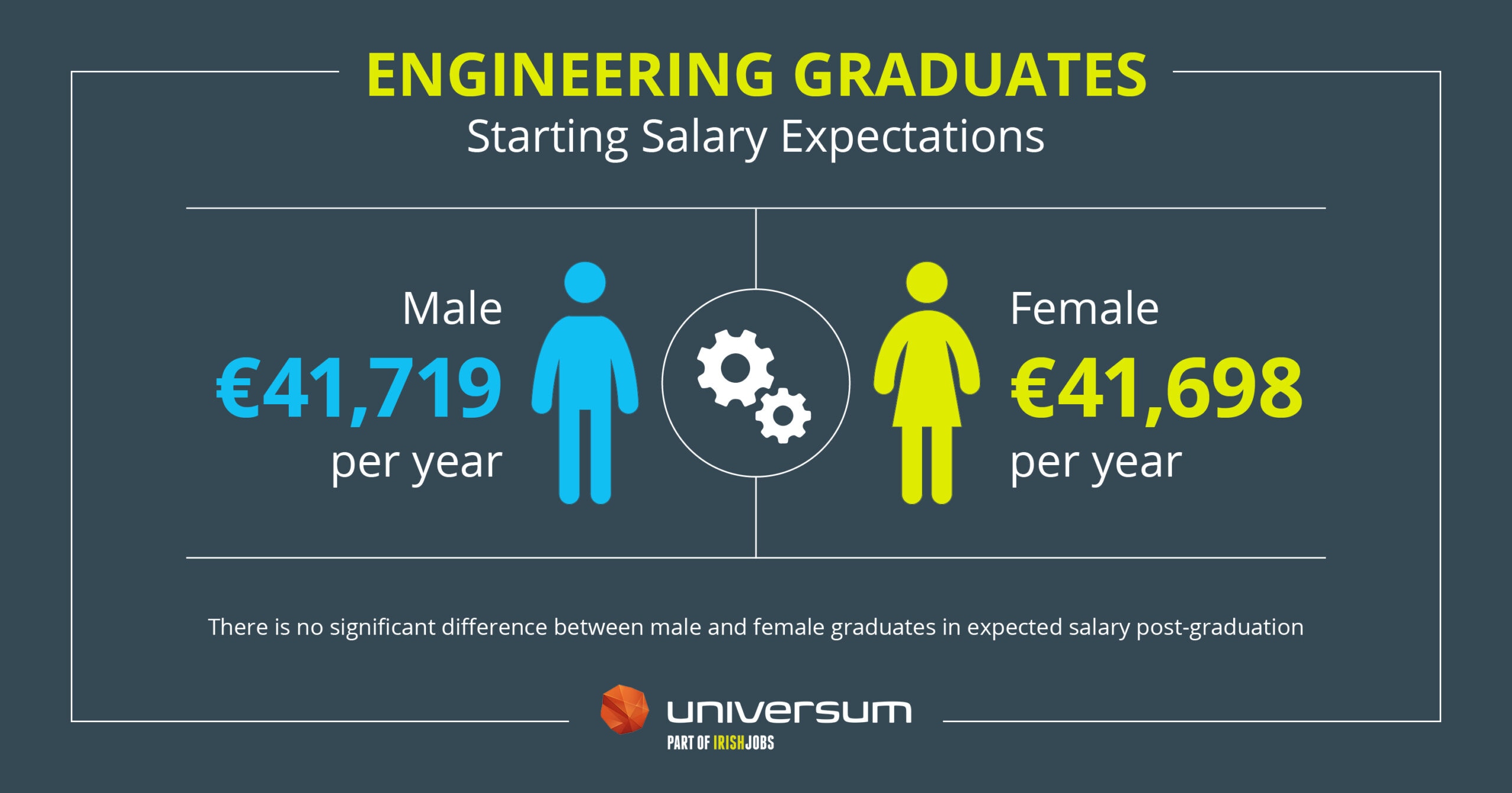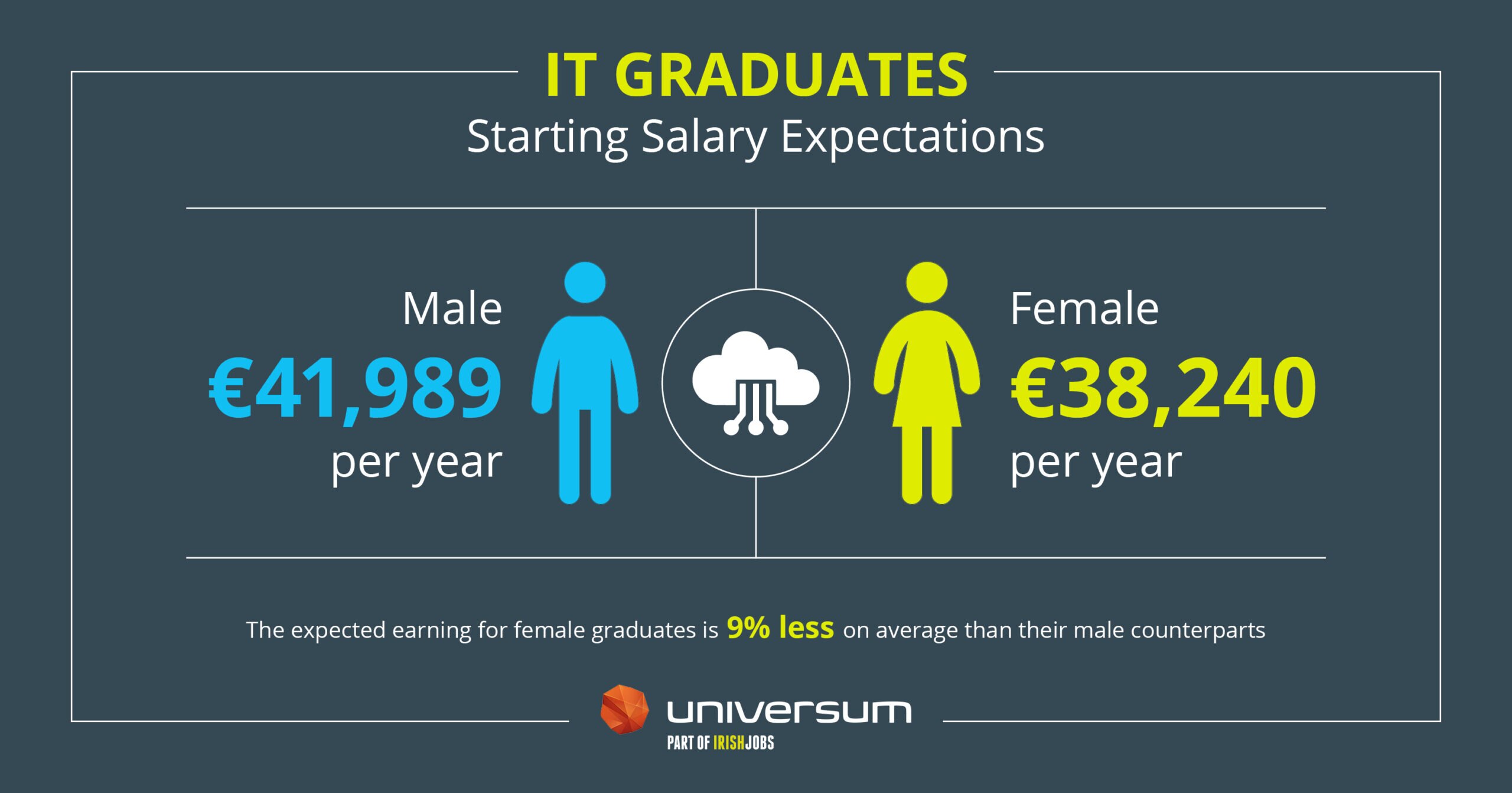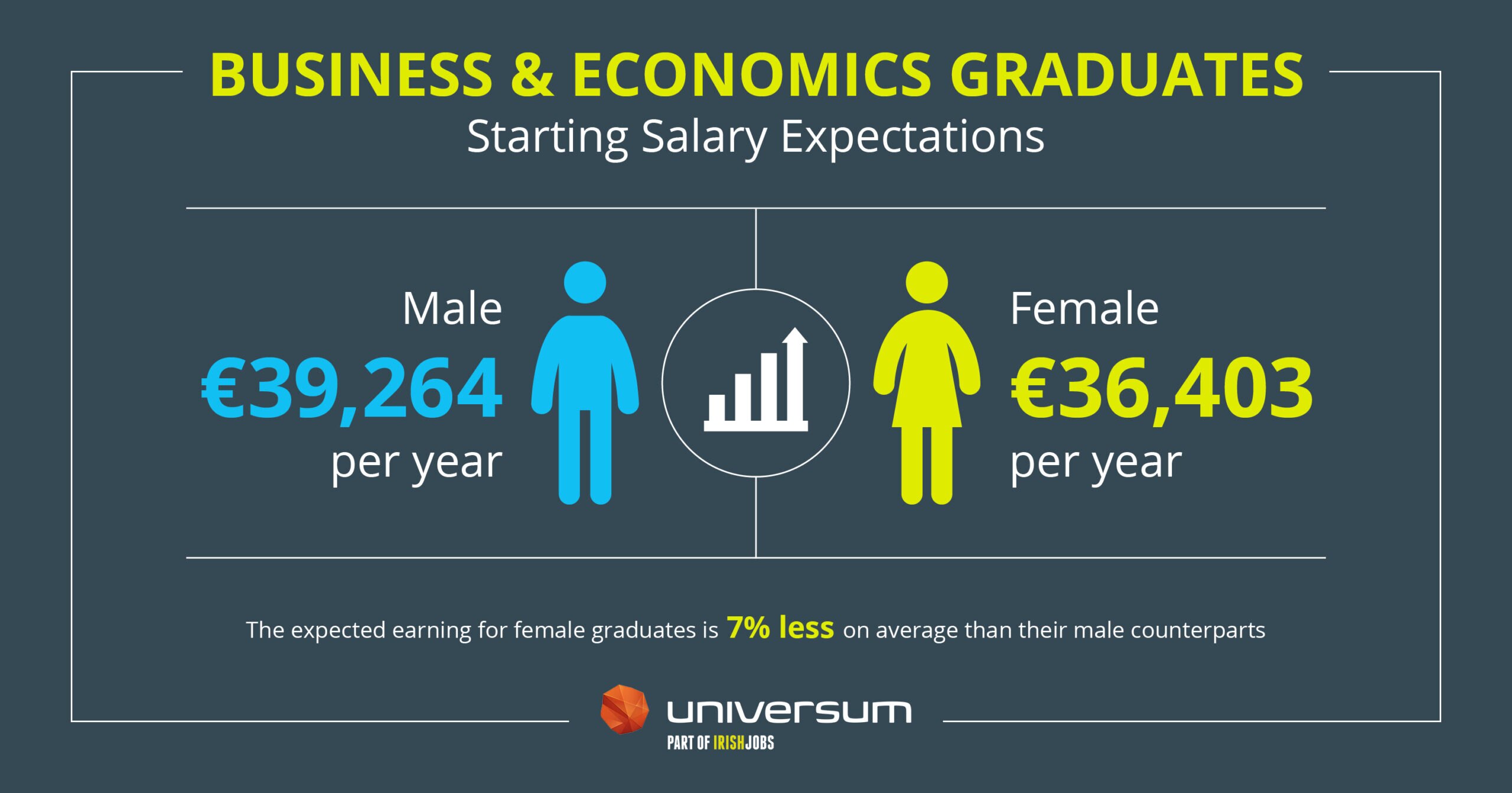New research published this week by global employer branding experts, Universum, part of IrishJobs, reveals that female graduates expect to earn 11% less than their male counterparts.
The Most Attractive Employers Index Ireland 2023, which was conducted among 8000+ students in Ireland across Business & Economics, IT, Engineering, Natural Sciences, Humanities, Law, and Medicine, provides a snapshot of the key attributes that today’s students are looking for in their future employer.
While male students expect to earn €40,441 in their first full-time job after graduation, female students say they expect to earn €35,891, a gap of approximately 11%. It is the first time the gender pay gap has increased since 202, indicating the relative persistence of the phenomenon among the next generation of the workforce.
Engineering Equality

Within the analysed sectors, there is considerable variation in the gender pay gap.
In the Engineering sector, there is no significant difference between male and female graduates in expected salary post-graduation, with males expecting to earn €41,719 and females looking for earnings of €41,698. It brings the expected average salary for engineering graduates to €41,387. This result may indicate the significant efforts made by the engineering industry to encourage female participation and increase the attractiveness of the sector to women in recent years.
Gaps in IT & Business

In contrast, in the tech industry, the expected earning for female graduates are expected to earn 9% less on average than their male counterparts. With male graduates expecting to earn €41,989, their female counterparts are looking for a starting salary of €38,240.
A gender pay gap of 7% was observed in the Business & Economics sector, with men expecting an average salary of €39,264 and women expecting to earn €36,403.

Workplace Priorities
The data also shows clear differences in workplace priorities between male and female students. Female students put a greater emphasis on job security (1st) and a friendly work environment (2nd) in career preferences, while male students are more focused on financial compensation in the form of high future earnings (1st) and a competitive base salary (2nd).
Top Career Preferences
High future earnings (1st) and job security (2nd) are the top overall attributes for third-level graduates across Ireland when considering their future careers, indicating the inflationary pressures and concerns around the rising cost of living are having an impact on student’s career choices. These are followed by a friendly work environment (3rd), good work-life balance (4th), and a clear path for career advancement (5th).
The importance of flexible working conditions (6th) to graduates has risen by four places since 2021, indicating that attitudes towards remote working triggered by the pandemic have solidified for the long term. 75% of graduates state that they are interested in remote working opportunities, a 4% increase from the number last year.
Buoyant Jobs Market
This year’s cohort of graduates have entered a strong jobs market. The 4.1% July unemployment rate is closed to a historic low with near full employment projected for the medium term.
According to data from the IrishJobs Jobs Index for Q2 2023, the jobs market is more settles than previous years, with job vacancies now largely in line with pre-Covid Q2 2019 levels (+1%).
Insights
Commenting on the results of the research, Steve Ward, UK and Ireland Business Director, Universum said:
“Now in its 5th edition, the annual Most Attractive Employers Index provides detailed insights into students’ career preferences and how they are being impacted by economic factors. The next generation of graduates are joining a strong jobs market, with the unemployment rate close to a historic low. In this context, it is unsurprising to see high earnings as the top preference for graduates once again. A rising cost of living indicates that the next generation of graduates are prioritising future financial income, while the tight labour market offers a constructive environment to achieve progress on this ambition.”
“Our findings showed clear differences between male and female graduates in career priorities, with male students prioritising financial compensation more than their female counterparts. Despite the rising cost of living, female graduates expect to earn 11% less than male students. Clearly, more work needs to be undertaken by employers to address this issue and achieve greater pay parity.”
“With many large organisations about to kick off their annual graduate recruitment programmes, employers should be conscious of the evolving demands of this new cohort to talent so they can tailor their hiring and recruitment strategies to compete effectively for best candidates.”
